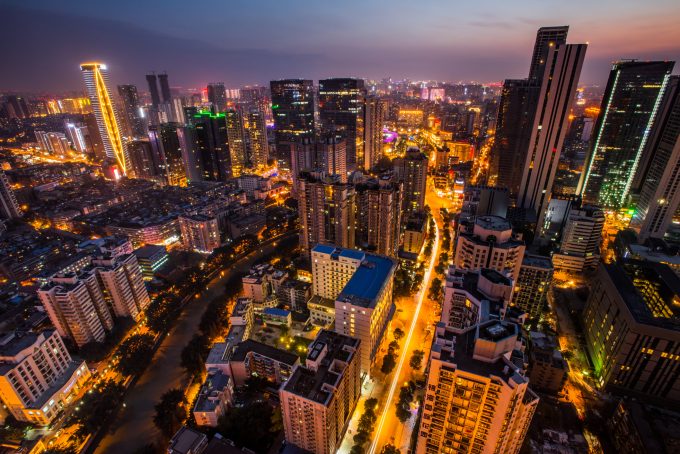Trump tariff threat and China downturn will make CNY 2025 'different'
The impact of Chinese New Year (CNY) on global supply chains “cannot be overstated”, according ...
GM: RAISING THE ROOF GGM: IN FULL THROTTLE GZIM: MAERSK BOOST KNIN: READ-ACROSSMAERSK: NOT ENOUGHMAERSK: GUIDANCE UPGRADEZIM: ROLLERCOASTERCAT: HEAVY DUTYMAERSK: CATCHING UP PG: DESTOCKING PATTERNSPG: HEALTH CHECKWTC: THE FALLGXO: DEFENSIVE FWRD: RALLYING ON TAKEOVER TALKODFL: STEADY YIELDVW: NEW MODEL NEEDEDWTC: TAKING PROFIT
GM: RAISING THE ROOF GGM: IN FULL THROTTLE GZIM: MAERSK BOOST KNIN: READ-ACROSSMAERSK: NOT ENOUGHMAERSK: GUIDANCE UPGRADEZIM: ROLLERCOASTERCAT: HEAVY DUTYMAERSK: CATCHING UP PG: DESTOCKING PATTERNSPG: HEALTH CHECKWTC: THE FALLGXO: DEFENSIVE FWRD: RALLYING ON TAKEOVER TALKODFL: STEADY YIELDVW: NEW MODEL NEEDEDWTC: TAKING PROFIT

Shippers are set to gain an option of rail or air for the growing exports from Chengdu, the capital of Sichuan province, to Europe.
The Chinese city is expecting heavy investment in industry, which will result in a Rmb1trn ($156bn) industrial cluster by 2022.
Including investment in biomedicine, automotive and electronics, Chengdu has big plans for economic growth, while e-commerce revenues will reach Rmb2.2trn annually by the same year.
In December, the municipal government also laid down plans for China’s first “Unicorn Island”, to encourage a gathering of high-growth tech companies. The city hopes to have some seven ‘unicorn’ companies – those less than 10 years old with a value of more than $1bn – and more than 60 in the pipeline by 2022.
Unsurprisingly, the logistics sector already has Chengdu in its sights. Lufthansa Cargo launched a new freighter operation to the city on May 5.
With Chengdu its fifth freighter destination in China, Frank Naeve, vice president Asia Pacific, said: “This extension to our network will allow us to offer solutions for the booming markets in the west of China.”
A 777 freighter leaves Frankfurt Mondays and Saturdays, returning from Chengdu each Tuesday and Sunday. Lufthansa said it was expecting e-commerce shipments on the flight.
And Lufthansa is not alone: this week DHL Global Forwarding (DGF) announced an extension to its China-Europe rail connections to include Chengdu.
Together with Rail Cargo Group, the forwarder will develop an intermodal rail network between Chengdu’s rail station to Vienna South Freight Centre. The first train on the route arrived at the end of April after a 15-day journey, spanning 9,800km and six countries.
DGF will offer door-to-door services, for what it expects to be high-value exports on the route.
“This direct connection offers fast, efficient and sustainable multimodal capacity supporting high-growth sectors that will bring immense benefits to both countries and continents,” said Thomas Kargl, a director of Rail Cargo Group. “The Chinese market holds enormous growth potential for Europe, and we intend for this route to support trade volumes that grew nearly 16% last year and show no sign of slowing or decreasing.”
Rail containers on DHL’s multimodal network offer remotely monitored temperature control, real-time tracking, fully managed customs clearance and consolidation, and enhanced security, it said.
Comment on this article